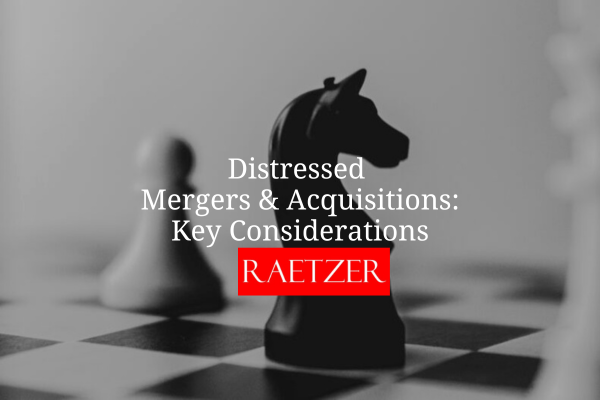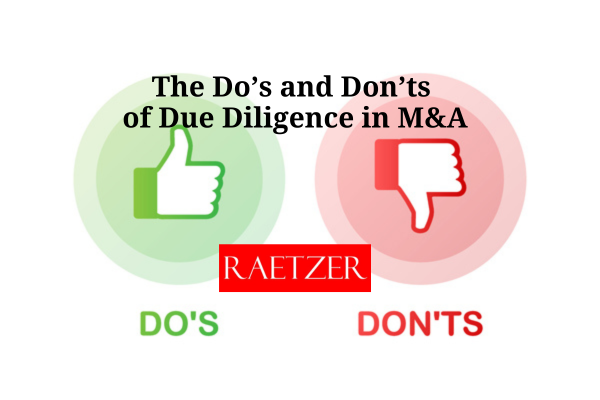In mergers and acquisitions (“M&A”), the primary transaction agreement typically includes representations and warranties (or “reps and warranties” or just “reps”) from each party to the other. These statements address various aspects of a party’s status, business, assets, liabilities, properties, condition, operating results and future prospects. Representations and warranties often span 15 to 30 pages within the transaction agreement and may extend further when referencing definitions. Drafting and negotiating these terms is a significant part of any M&A deal.
Why Are Representations and Warranties Important?
Representations and warranties fulfill four main roles:
- Disclosure
Reps and warranties enable one party with an informational advantage to disclose essential information about itself—or in a sale, about the target company or assets—to the other party. Most of the information flows from the seller to the buyer, particularly when the transaction involves a cash purchase price rather than buyer stock. Acting as an extension of the due diligence process, reps and warranties reduce information imbalances. While drafting them, parties often uncover information that could impact the deal’s value, leading to potentially significant adjustments to the transaction. - Walk Rights
Reps and warranties also protect each party’s right to terminate the agreement if conditions are unmet. In deals with a delay between signing and closing, the transaction agreement will include conditions that must be satisfied or waived before either party is obligated to proceed. These conditions often require that the reps and warranties remain accurate up to closing. This enables both parties, especially buyers, to continue due diligence during this “gap period” and to walk away if a rep becomes untrue due to unforeseen changes. - Risk-Shifting
Representations and warranties shift risk from one party to the other, often entitling the harmed party to compensation for losses resulting from inaccurate statements. This risk-shifting is especially relevant in private M&A transactions (as opposed to public deals where post-closing indemnities are rare). The buyer generally expects that the seller will assume the risk of losses from false reps, helping the buyer accurately price the transaction and make informed plans for the business post-closing. This risk-shifting function frequently arises in negotiations, where parties may challenge specific representations. Skilled M&A lawyers often counter objections by emphasizing that the goal is not simply truth but allocating risks in a manner that protects their client from specific potential losses. - Discipline
Finally, reps and warranties encourage accountability. The risk of a broken deal or potential claims for breached reps incentivizes the disclosing party to ensure that its statements are accurate and that the target company is compliant with requirements such as good standing, due authorization, and the absence of conflicting contracts.
What Do Representations and Warranties Cover?
Reps and warranties can address a wide range of topics, such as the target’s legal existence, financial statements, and the buyer’s financing capabilities. A common example of a rep provided by the seller is an “absence of conflicts” statement, which confirms that the transaction will not conflict with the company’s other obligations or create legal violations.
Common topics addressed in the seller’s reps and warranties include:
- Organization and good standing
- Authority and enforceability
- Capitalization and ownership
- Financial statements
- Assets and liabilities
- Intellectual property
- Material contracts
- Tax matters
- Employee benefits
- Environmental, health, and safety compliance
- Legal proceedings
- Insurance
- Full disclosure
The transaction agreement typically includes reciprocal representations from the buyer to the seller. When the buyer issues stock as part of the purchase, its representations will mirror those of the seller to a greater extent. In cash-only deals, however, the buyer’s reps are generally narrower, often focusing on:
- Organization and good standing
- Authority and enforceability
- Absence of conflicts
- Governmental consents
- Financing
In short, representations and warranties play a vital role in M&A agreements, facilitating disclosures, enabling termination rights, shifting risk, and encouraging disciplined, accurate statements. These provisions ensure that both parties are informed and protected, fostering smoother transitions and more successful transactions. This is yet another example of how “off the shelf” agreements that are not carefully drafted can harm a buyer or seller.




